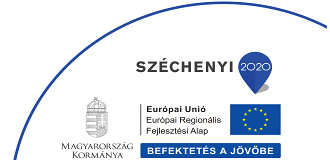Did we guess how quickly we can switch from the way we went to university a few years ago, to virtual classrooms, and then back? How will we study, teach, and research in a few years, when the new campus of the Károli Gáspár Reformed University is built? What new methods will there be in education? Why will it be important to be there in person? What new types of spaces will be needed for a new type of presence? It is not certain that we can answer these questions… It is also not certain that we know what we do not know…
The ability to renew rooted in tradition is an important Reformed basic value. The ability to adapt to future conditions is a basic principle of our architectural concept. Spaces with stricter structural requirements and more technologically demanding functions, such as the sports hall and auditoriums, were located on the lower levels and inside the building, like a massive plinth. This is where the mass of the less constrained spaces for students and teachers was placed.
Its operation is based on a rationally constructed, clean supporting structure with sustainable material use and the matching homogeneous infrastructure grid. This system is easily accessible, can be developed, can flexibly adapt to unforeseen or planned functional changes, and is thus always up-to-date. Building less and recycling is perhaps the most important form of sustainability. Durability and adaptability are the basic conditions for planning for a long service life.



